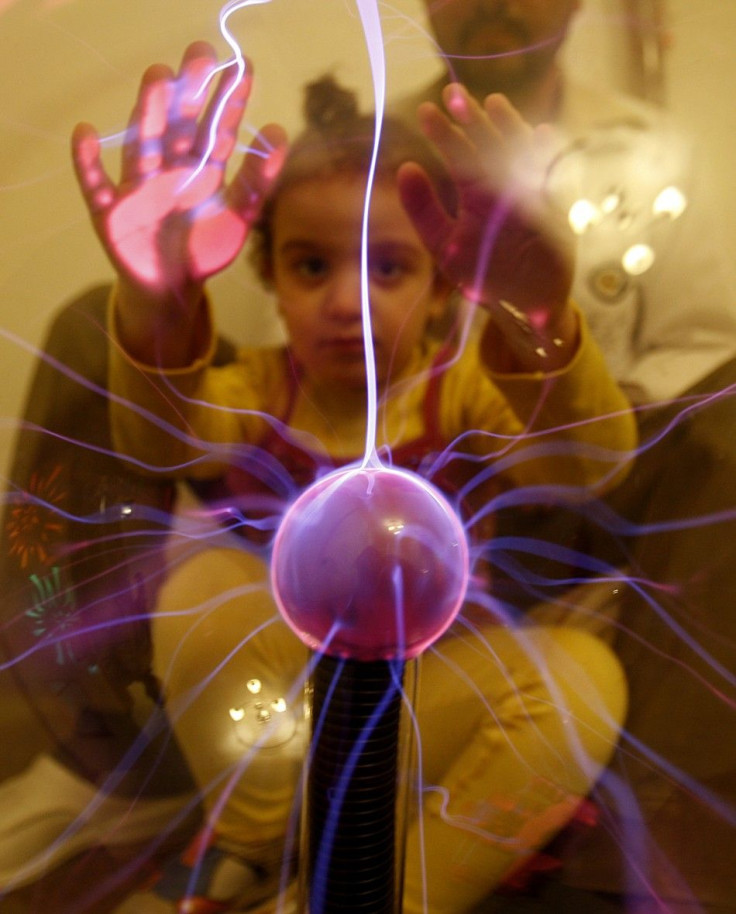Autism Awareness Day: Why Are Autistic Children Of Wealthy Parents More Likely To 'Bloom'?

Some autistic children bloom around eight years old, appearing to grow out of many of the condition's crippling symptoms -- and a new study may be able to shed some light on why. Researchers analyzed over 7,000 autistic children and found that the socioeconomic status of the children and their family played a large role in whether the child bloomed or not.
Autism is a development disorder characterized by impaired social and communication skills. Autistic children often have poor social skills, a delay in learning to talk, limited interests in activities and engage in repetitive behaviors, according to the Mayo Clinic.
Only about 10 percent of autistic children grow out of these symptoms and researchers were unable to find a reason why some children bloom. However, they did find that autistic children with less-educated mothers are significantly less likely than wealthy white autistic children to experience a bloom.
These socioeconomic disparities suggest that equal access to early interventions and services for less advantaged children is going to be really vital, Christine Fountain, study coauthor and researcher at Columbia University, told LiveScience.
Autism is typically diagnosed around 3 years of age, but symptoms can be seen as early as 16-months-old. Early intervention consists of therapy to help children walk, talk and interact with others before an official diagnosis is made.
Children with severe autism usually improve only marginally, so the bloomers marked progress was a surprise to researchers. On a test of communication skills, high-functioning autistic children typically scored 50 out of 100 at age 3 and progressed to near-perfect at age 14, according to the study. Severely autistic children typically progressed from 15 to 20. On average, bloomers improved from a score of 20 to 80.
It was a surprise to see how much improvement they showed -- and how quickly, Fountain told MSNBC. That's kind of hopeful message.
But the findings didn't surprise Tamar Apelian, an autism expert from the University of California Los Angeles. Most children need about 30 to 40 hours a week of intervention, he told MSNBC. What's tricky is being able to navigate the system to get the therapy...The parents who do this seem to have more means and they can hire an advocate or a lawyer.
More educated parents may be better apt to recognize warning signs as well. A 2010 study published in the journal Autism Research found that children born in Silicon Valley are twice as likely to be diagnosed with autism than children in the surrounding area. That study confirms an association between parental education and autism risk, Bernard Weiss, a professor of environmental medicine at University of Rochester, who was not involved in the study, told Scientific American. I would agree that their findings indicate a higher likelihood of seeking services by educated parents.
Autism rates have skyrocketed since 2002, according to the Centers for Disease Control and Prevention. In 2002, 1 in 156 children were diagnosed with autism. In 2008, 1 in 88 children were diagnosed, an increase of 78 percent.
The cause of autism is not known, but having a sibling with autism raises the risk. In addition, scientists think there is a genetic factor to the condition.
If the rate is truly increasing, then there has to be something in the environment interacting with people who are prone--something that pushes people who are at risk over the edge, Gary Goldstein, president and CEO of the Kennedy Krieger Institute, a center that supports children with the disease, told the Chicago Tribune We are beginning to identify the risk genes, but [the genes] don't cause it all by themselves.
The journal Pediatrics published the study on Tuesday.
© Copyright IBTimes 2024. All rights reserved.











